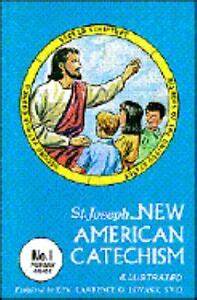A Quote by Charles Caleb Colton
There is a diabolical trio existing in the natural man, implacable, inextinguishable, co-operative and consentaneous, pride, envy, and hate; pride that makes us fancy we deserve all the goods that others possess; envy that some should be admired while we are overlooked; and hate, because all that is bestowed on others, diminishes the sum we think due to ourselves.
Related Quotes
Envy, my children, follows pride; whoever is envious is proud. See, envy comes to us from Hell; the devils having sinned through pride, sinned also through envy, envying our glory, our happiness. Why do we envy the happiness and the goods of others? Because we are proud; we should like to be the sole possessors of talents, riches, of the esteem and love of all the world! We hate our equals, because they are our equals; our inferiors, from the fear that they may equal us; our superiors, because they are above us.
Envy is the most universal passion. We only pride ourselves on the qualities we possess, or think we possess; but we envy the pretensions we have, and those which we have not, and do not even wish for. We envy the greatest qualities and every trifling advantage. We envy the most ridiculous appearance or affectation of superiority. We envy folly and conceit; nay, we go so far as to envy whatever confers distinction of notoriety, even vice and infamy.
Envy, envy eats them alive. If you had money, they’d envy you that. But since you don’t, they envy you for having such a good, bright, loving daughter. They envy you for just being a happy man. They envy you for not envying them. One of the greatest sorrows of human existence is that some people aren’t happy merely to be alive but find their happiness only in the misery of others.
The remarkable thing is that we really love our neighbor as ourselves: we do unto others as we do unto ourselves. We hate others when we hate ourselves. We are tolerant toward others when we tolerate ourselves. We forgive others when we forgive ourselves. We are prone to sacrifice others when we are ready to sacrifice ourselves.
The geometry of judgment is a circle. Hate is a snake that turns to consume itself from the tail, a circle that diminishes to a point, then to nothing. Pride is such a snake, and envy, and greed. Love, however, is a hoop, a wheel, that rolls on forever. We are rescued by those whom we have rescued. The saved become the saviors of their saviors.
We are more inclined to hate one another for points on which we differ, than to love one another for points on which we agree. The reason perhaps is this: when we find others that agree with us, we seldom trouble ourselves to confirm that agreement; but when we chance on those who differ from us, we are zealous both to convince and to convert them. Our pride is hurt by the failure, and disappointed pride engenders hatred.
Pride... is a very common failing, I believe. By all that I have ever read, I am convinced that it is very common indeed; that human nature is particularly prone to it, and that there are very few of us who do not cherish a feeling of self-complacency on the score of some quality or the other, real or imaginary. Vanity and pride are different things, though the words are often used synonymously. A person may be proud without being vain. Pride relates more to our opinion of ourselves, vanity to what we would have others think of us.
Pride is a mental factor causing us to feel higher or superior to others. Even our study of dharma can be the occasion for the delusion of pride to arise if we think our understanding is superior to that of everyone else. Pride is harmful because it prevents us from accepting fresh knowledge from a qualified teacher. Just as a pool of water cannot collect on the tip of a mountain, so too a reservoir of understanding cannot be established in a mind falsely elevated by pride.
Pride is a terrible and dangerous thing. It can take so many forms; it can even assume the appearance of humility. Pride can lead not only to self-exaltation, but also to self-abasement. The key to battling pride is not found in struggling against thinking too highly of ourselves or in striving to think of ourselves as lowly. The key is found in simply not thinking about ourselves at all, but setting our minds on Christ and the needs of others.
Love rejoices in good wherever it finds it; envy is pained by good, and the sight of the happiness of others hurts the eyes and the heart of the envious man. Love wishes to give; envy would rather receive. Love creates; envy destroys. Love builds up; envy pulls down. Love helps those in need, comforts the afflicted, and strives to turn all that is evil into good; envy would turn the little happiness to be found in this world into evil, sorrow, and pain.
































